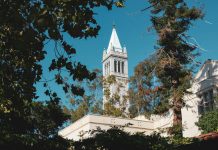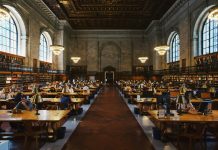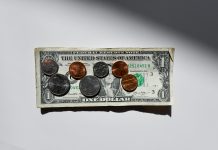
김주헌 기자가 Iowa State University 재학 당시 학보에 기고했던 컬럼을 재구성한 기사입니다.
George Takei, an American actor and LGBTQA activist, recently lent his support to an under-represented minority in a culturally conservative country: Korea’s LGBT community. In a speech at Seoul City Hall on May. 28, he talked about his own journey toward accepting himself as a gay man and motivated Korean LGBT members to fight for their own rights. Takei and Korean LGBT members inspired me a lot even though I was not interested in homosexual issues before attending the meeting.
Takei was born in Los Angeles, California to Japanese-American parents in 1937. After graduating from the University of California, Los Angeles, where he received a Bachelor of Arts in theater in 1960 and a Master of Arts in theater in 1964, he became one of the most popular American actors. He played Mr. Sulu in “Star Trek”, which was a popular American TV show.
During his speech, Takei recounted a double-date he went on as a teenager, where he realized he was more interested in his friend named David than his date named Monica. In addition, he couldn’t sympathize with his classmates when they said, “I want to date Monica. She is so hot.” Nevertheless, he felt that he had to pretend to be a straight because society was not open-minded to homosexuals at that time.
Homosexuality at the time was regarded as a disease, so homosexual bars and events had to be under the government’s control until 1973. Takei stated that members of LGBT community started to demonstrate after many homosexuals were injured and arrested by police during an equal rights protest. Because all the citizens need to be treated equally in democratic country, he thought discrimination against homosexuals could not be accepted.
Finally, he revealed that he was gay to the public in 2005 and began his own LGBT campaign. He criticized several conservative politicians in Arizona when the religious freedom bill, which justified rejecting homosexuals from having businesses because of their sexual orientation, was established on CNN. He is also discussing homosexual rights all around the world by delivering speeches. After homosexual marriage became legalized in 2008, he married his boyfriend Brad Altman, whom he has dated for twenty-seven years.
After his speech, several audience members made comments about the speech, asked him questions about homosexual issues and talked about their own experiences. Jang Minho, a Korean transgender man, said he used to be bullied by his co-workers and even family members just because of his sexual orientation. Whenever he failed exams and job interviews, his parents and siblings blamed him because they thought he only focused on sex reversal surgery all the time and did not concentrate on studying.
Park Mina, another audience member, said that because most Koreans are close-minded toward homosexuality, she thinks it might be impossible to make a change in Korea. She also talked about the “Korean Queer Festival,” which was a parade of the Korean LGBT community. During the parade, there was a confrontation between LGBT members and some Christians from conservative churches, so the festival was almost ruined.
However, Takei encouraged homosexuals to not give up even though there are many obstacles to achieve their goals. He also stated that he would keep fighting for homosexual rights in the U.S. and argue with conservative politicians who express homophobia.
Homosexuals should not be discriminated in any democratic nations, since any kinds of discrimination are against human rights. However, the most effective way to change in Korean society as it relates to non-heterosexuality is for people to stop living in fear and be honest about their persons. It’s time for non-heterosexual identified people to take a stand for their equal rights if they want them. If gays do not accept their homosexual lives, why should they expect others to accept them? Acceptance starts with onesself and the best way to end bullying is to stand strong to your truth and against those who reject your truth. It’s time to stop being weak.
[작성: 김주헌, 편집: CalFocus 편집부]










